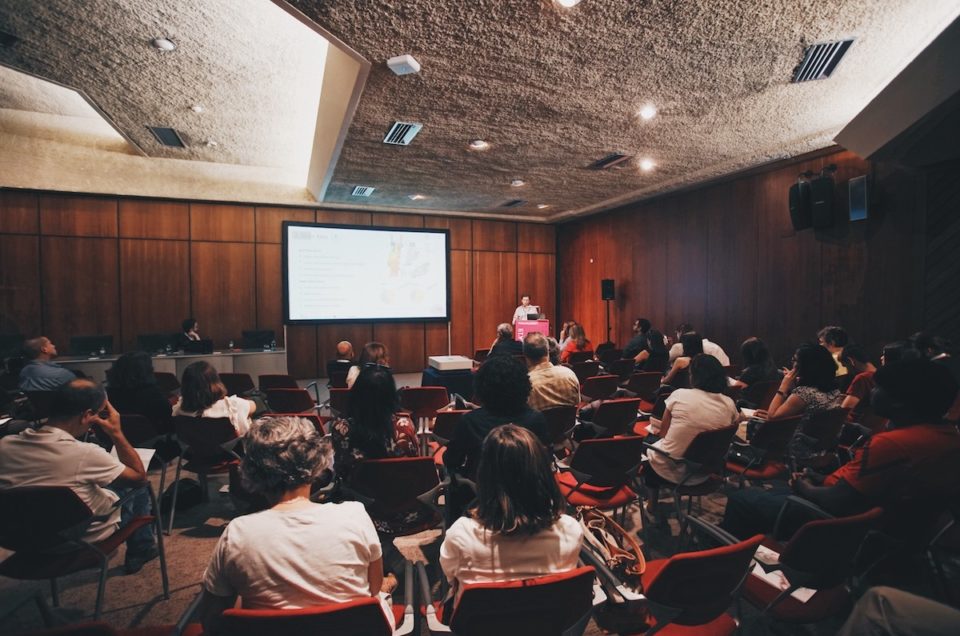INTERACT present at “Encontro Ciência 2009”

INTERACT researchers (“Integrative Reserach in Environment, Agro-Chains and Technology”) participated in the 2019 edition of the Encontro Ciência (“Science Meeting”), which took place between July 8th and 10th, in Lisbon. Luís Filipe Fernandes and Pedro Melo-Pinto, researchers and teachers at the University of Trás-os-Montes e Alto Douro (UTAD), presented part of what is developed in the project and at the university.
Receivability to the work was “excellent”
Luís Filipe Fernandes was the first to show the investigation. The INTERACT researcher presented the project “Water resources management in river basins facing floods and droughts”.
The professor said that the research “translates into the conception of two methodologies of location optimization”. One of the methodologies manages to define “the best place” for the “implementation of rainwater utilisation structures with application to various purposes” such as “agroforestry uses”. The second methodology intends to optimize the places in order to mitigate or even completely control floods or droughts “through retention basins”. This methodology follows an imposition of a 2007 European directive and, in this context, “Portugal has identified 22 critical flood risk areas”.
“No one has been indifferent to the two different models before a country that lives permanently, and over the years, in extreme situations of floods and droughts”, the researcher said.
Pedro Melo-Pinto presented the research “The problem of generalization in machine learning models for wine grape ripeness assessment using hyperspectral imaging”.
The professor explains that the research consists in the “use” of “hyperspectral imaging”, a “non-destructive technology”, and of artificial intelligence “to predict determining parameters in grape ripening”. These parameters are obtained using a “deep learning model”. This is trained to return the heat of the parameters involved, using a fairly extensive set of samples and examples. Then, a “test phase” of the model is followed, and samples “not involved in the training” are submitted. What is obtained are “the parameter values” of these samples extremely quickly. However, this is precisely where the challenge is posed: “To be considered effective, the methodology needs to be generalizable, i.e. to obtain correct results for varied and unknown samples from the training process which, in the case of grapes, is of great importance given their variability”, the reseacher said.
The applicability of this research, started in 2009 and was further developed thanks to INTERACT, is of particular relevance, having “aroused the interest of several researchers present” in the presentation. The monitoring of grapes has a key role in the present and “the fact that there is a fast, reliable and environmentally sustainable methodology to carry it out extensively” could be considered “a decisive added value in the wine sector”, he said.
Ana Barros, researcher of the INTERACT project and director of the Centro de Investigação e Tecnologias Agroambientais e Biológicas (“Centre for Research and Agri-environmental and Biological Technologies”) (CITAB), anchor-centre of the scientific project, was also at this meeting, presenting “CITAB: an overview”.
The “Science Meeting” annually promotes “a broad debate of the main themes and challenges of the scientific agenda beyond the universe of research”, in addition to stimulating “the interaction between researchers, business sector and the general public”, the organization explains. The first edition of the “Science Meeting” took place in 2008 and was suspended in 2010. The return took place in 2016, maintaining its annual format.

























